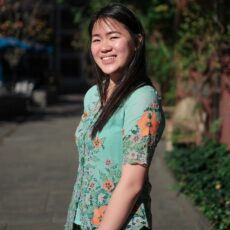
Not Just Energy: Energy Policy and Citizenship Affirmation
The energy transition is about more than technological progress. Progressive policies can spur positive change, which creates a more equitable society and extends beyond energy.
This insight placed third in our fall blog competition.
In pursuit of a just energy system, the energy transition must now shift its focus from technological progress (which has quickly made renewable energy cost competitive with fossil fuels) to the introduction of progressive policies for outcast communities unable to access existing resources. These energy policies have the potential to grant fairer and more reliable energy access as well as affirm citizenship of social out-groups.
Indonesia, one of the fastest growing countries in terms of renewable energy production, exemplifies this need. The Indonesian government set a goal for 23% of its energy to be renewable by 2025. The energy policies and investments that are required to meet this goal will undoubtedly sow economic, political, and health benefits. However, the government must regard the accessibility of renewable energy among all socioeconomic layers of the Indonesian population, especially those whose citizenship is politically scrutinized. In the case of Indonesia, one group in question are informal settlement or “slum” dwellers of its capital, Jakarta.
Indonesia’s National Land Agency stated that 49% of Jakarta’s districts classify as a slum, which can be defined as meeting one of three criteria: 1) lacking in physical services (water, waste management, overcrowding), 2) lacking in resident income and/or education, 3) built on unregistered land. According to local news source, regional and even national governments in Jakarta have a “mental block” that causes them to see those living in “slums” as non-citizens. As a result, these citizens are constantly under risk of forced eviction by the government. This questioning of citizenship is frustrating as it not only overlooks the significant economic contribution of these citizens to the city, but also disregards the fact that the colonial Dutch and their lackluster initial approach to land titling are the cause of a lack of “formal” land ownership among ancestral land. Clearly, this stigma must be overcome if we are to find an equitable solution for all facets of society.
Policy-makers in England, Wales, and Scotland have started to legally acknowledge the distinct need of particular social groups: the elderly, infirm, and chronically-ill, who require more fuel to maintain higher room temperatures for their health. This policy approach removes the negative stereotype that looms behind their identity, so that they are no longer viewed as a burdensome social out-group. A similar approach should be applied towards those living in informal settlements to purge prejudices cast by other social groups and encourage collaboration in finding optimal energy solutions for the city as a whole.
By subsidizing the energy costs of the older and chronically ill, the government is affirming this subgroup’s citizenship by alleviating their most pressing need. Along the same line of thought, the direst need among Jakarta’s informal settlers is access to a reliable energy grid. Instead of connecting these residents to the main grid, however, it would be more apt to introduce a local renewable energy grid. This new local grid would power the local community, and any excess energy can be routed to the main citywide grid. This investment would result in a double impact of a) upholding the citizenship of the informal settlers by accommodating their socioeconomic needs, and b) empowering this community through its ability to contribute to the city’s greater needs in a sustainable way.
Achieving a successful energy policy transition will require a middleman between electricity providers and the urban poor, as a common barrier to energy access is a lack of trust between the two stakeholders. In Mumbai, India, electrification of “pavement dweller” settlements were led by community-based organizations and nongovernment organizations. This carefully mediated conversation led to a successful negotiation with the government and electricity providers. The result was a decrease in electricity theft, benefitting all the parties involved.
Therefore, an energy policy reform mediated by local leaders could solve not only socioeconomic needs for physical resources, but also emphasize legitimacy of residence and a civic and political recognition of citizenship. In other words, a just energy transition is a catalyst for change that has the potential to set off a series of positive changes which point to a more equitable society and extends beyond just energy.
Gabrielle Utomo
Undergraduate StudentGabrielle Utomo is an undergraduate student studying achitecture and political science in the School of Arts and Sciences. She is from Jakarta, Indonesia and is also a student fellow at Perry World House.

